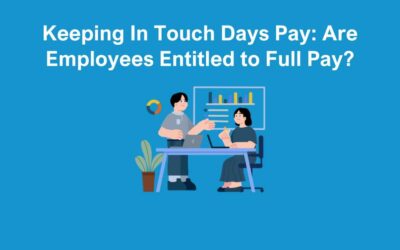In an ever-evolving business environment, the approach to salary increases UK is a critical factor in maintaining a competitive edge, attracting, and retaining top talent, and fostering a motivated workforce. This blog post delves into the strategic considerations businesses must make when planning for salary increments.
Market Research and Benchmarking
Begin by conducting thorough market research. Analyse industry salary surveys, regional compensation data, and the pay scales of similar roles in your industry. This step is crucial to ensure that your salary offerings are competitive and align with current market standards. It helps in identifying gaps in your current pay structure and in making informed adjustments.
Performance Evaluation Metrics
The foundation of fair salary increases UK is a robust performance evaluation system. Define clear, quantifiable performance indicators that reflect individual contributions, team performance, and alignment with company goals. This approach not only aids in identifying deserving candidates for salary increases but also ensures fairness and objectivity in the process, fostering a culture of meritocracy.
Budgeting and Financial Planning
A critical aspect of planning salary increments is financial viability. Assess your company’s financial health and forecast future revenues to determine the budget for salary increases. It’s essential to strike a balance between rewarding employees and maintaining the financial stability of the business. Consider the long-term implications of salary increments on your company’s financial planning.
Legal Compliance and Equity
Ensure that your salary increases UK decisions comply with all legal standards, including National Minimum Wage and equal pay. An equitable salary structure that acknowledges and rewards skills and contributions irrespective of gender, race, or other demographic factors is not only a legal imperative but also key to fostering a diverse and inclusive workplace.
Employee Communication and Feedback Loops
Effective communication with employees is pivotal. Be transparent about the criteria, process, and timelines for salary reviews. Encouraging feedback and open dialogue about compensation helps in understanding employee expectations and can provide valuable insights for future salary planning.
Continuous Review and Adaptation
Salary management is an ongoing process. Regularly review and adjust your salary structures to remain aligned with market changes, company performance, and employee needs. This proactive approach helps
in staying ahead of compensation trends and retaining a competitive position as an employer.
Conclusion
Salary increases UK are more than just financial decisions; they are a reflection of a company’s values and its commitment to its employees. By strategically planning salary increments, businesses not only enhance employee satisfaction and retention but also cement their reputation as fair and desirable employers. Remember, investing in your employees is investing in the future of your business.
When implemented thoughtfully, a well-structured salary increase plan can significantly contribute to a positive company culture and robust business growth. It’s essential to approach this process with a strategic mindset, balancing internal objectives with external market dynamics.
Contact Us
If you would like support with implementing salary increases UK in your business, contact our HR experts by filling out the contact form below.







